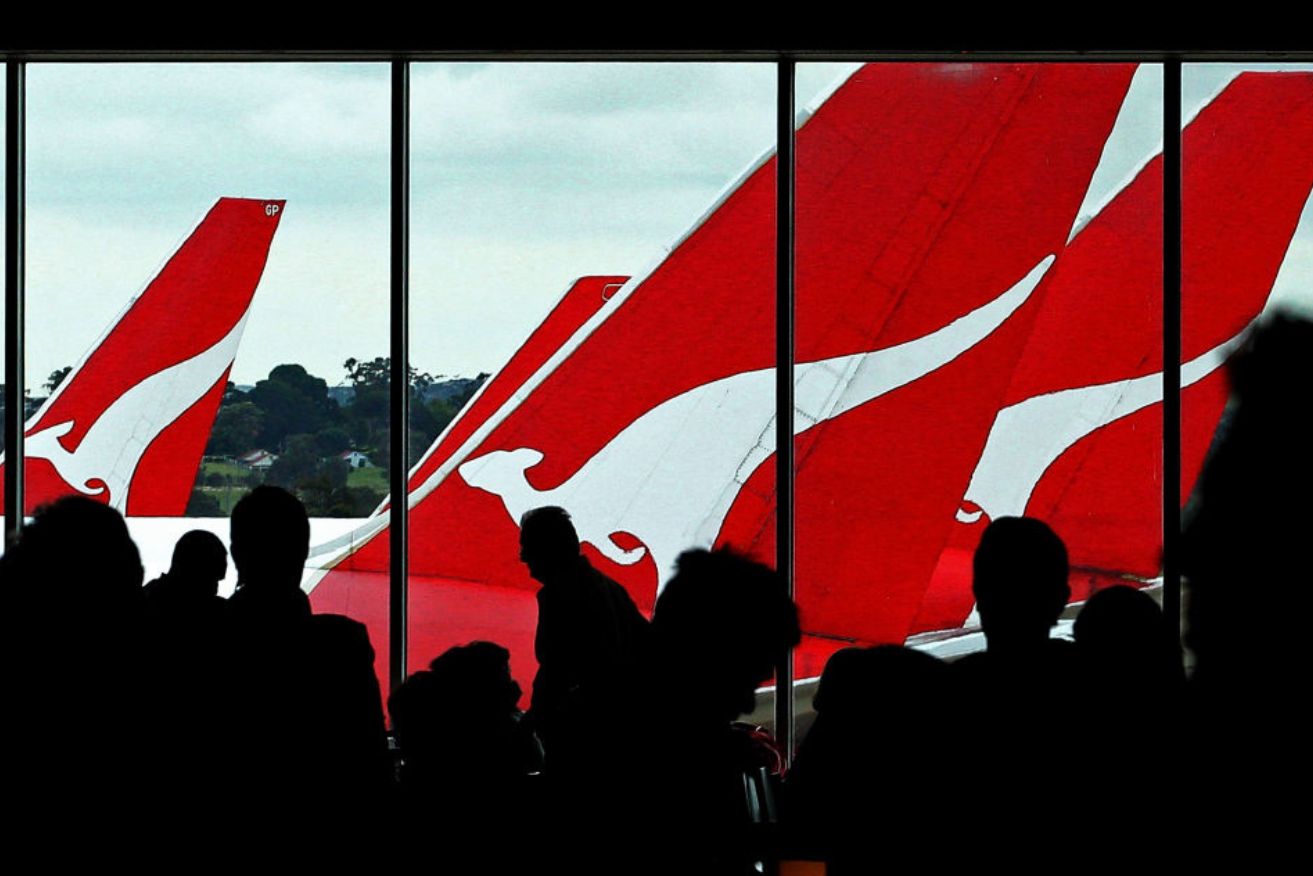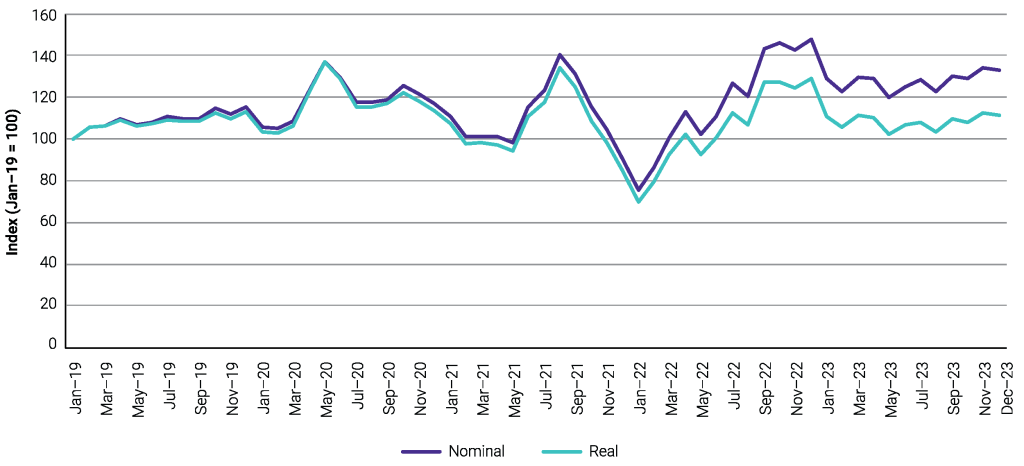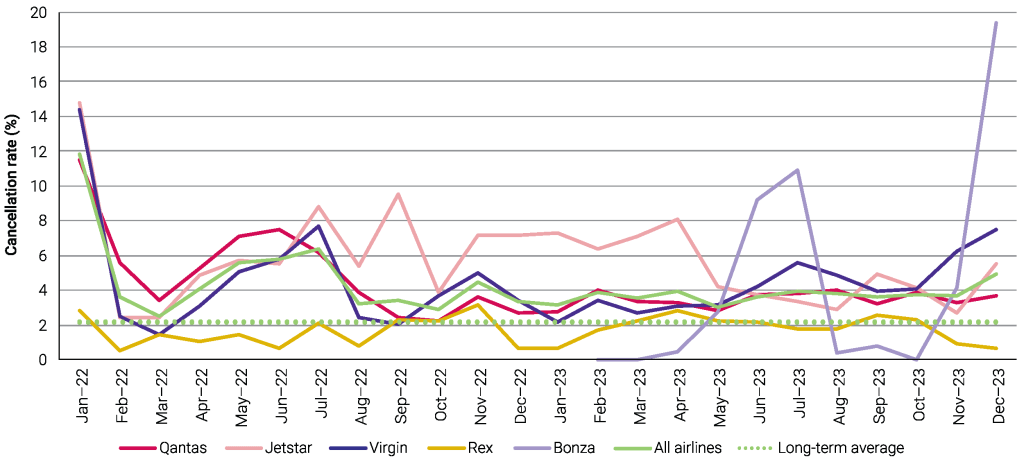Australians enjoy lower airfares, but poor service standards persist: ACCC


The ACCC says airfares are falling, but service standards remain poor. Photo: Getty
Australians are enjoying lower airfares on the back of cheaper jet fuel, but airlines continue to let down the public with poor service standards, a new watchdog report has found.
Australian Competition and Consumer Commission (ACCC) figures published on Tuesday revealed that average revenue per passenger sank 13.4 per cent annually in December, below pre-COVID levels.
However, the cheapest fares on the market are still slightly pricier than they were before December 2019, the ACCC said.
ACCC chair Gina Cass-Gottlieb said it all meant flyers were no longer paying the sky-high airfares suffered during the two-year post-pandemic period.
“Travellers finally saw some relief from high airfares last year, which was consistent with cheaper jet fuel prices and slightly lower demand for domestic air travel,” Cass-Gottlieb said.

Source: ACCC (click to enlarge).
It’s not all good news though; airlines continue to struggle with poor service standards and last Christmas delayed or outright cancelled far more flights than they have historically.
About five per cent of flights were cancelled in December, which the ACCC said is more than double the long-term average.
Meanwhile, only 63.9 per cent of flights arrived on time over the month, far lower than the long-term average of 81.1 per cent.
“The persistently high rates of cancellations and delays compared to long-term averages in the second half of last year were clearly disappointing for consumers,” Cass-Gottlieb said.
The latest ACCC airline monitoring report was almost not published because the ACCC’s pandemic-era monitoring of the industry had lapsed, but in November Treasurer Jim Chalmers moved to reinstate it amid substantial public criticism of national carrier Qantas.

Source: ACCC (click to enlarge).
The ACCC will continue to publish its reports quarterly, delving into how airlines are competing with each other on major routes and how many people are taking to the skies.
On that score, the ACCC finds airlines operated at 95 per cent of their pre-pandemic capacity in December, with about 4.8 million people taking domestic flights to end the year.
Cass-Gottlieb said the industry “appears to have largely moved on from its recovery phase and is now exhibiting more typical seasonal trends”.
But this fails to explain why service standards remain so poor, with airlines blaming everything from weather events to disruptions in the supply of air traffic controllers.
The ACCC has found, however, there are factors within the airlines’ control that have contributed to lacklustre service standards, including pilot training bottlenecks and “some supply chain disruptions”.
The past year has also been marked by the introduction of low-cost carrier Bonza into the Australian market, with the ACCC saying that there are now four different airlines competing on major domestic routes for the first time.
About half of domestic passengers flew on routes with either three or four competing airlines in December, which the ACCC believes is a good sign for putting downward pressure on prices.
“When more airline groups compete on a particular route, consumers benefit from lower fares,” Cass-Gottlieb said.
“Qantas and Jetstar, however, continue to fly over 60 per cent of domestic passengers, representing a very high market concentration.”
Bonza has managed to fly about 750,000 passengers in its first year, the ACCC said, with 35 routes now operational – 33 of which are in regional locations.








